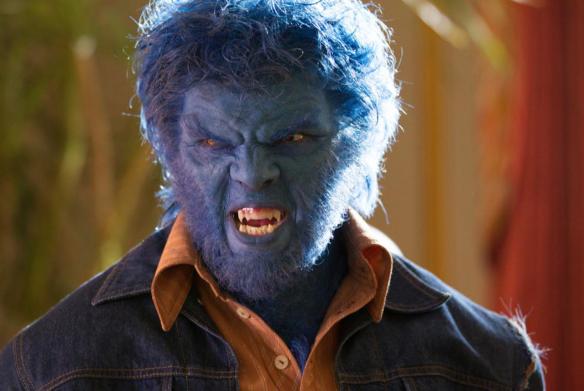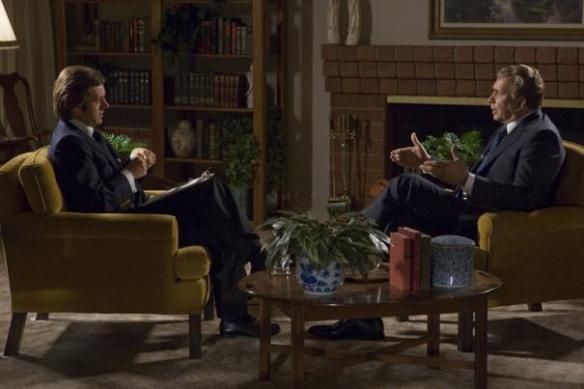(2017) Documentary (Netflix) Roger Stone, Donald J. Trump, Paul Manafort, Tucker Carlson, Jeffrey Toobin, Alex Jones, Jane Mayer, Wayne Barrett, Henry Siegel, Matt Labash, Nydia Stone, Michael Caputo, Charlie Black, Ryan Fournier, Mike Murphy, Steve Malzberg, Kathy Tur, Timothy Stanley, Ann Stone, Danielle Stevens, Adria Stone. Directed by Dylan Bank, Daniel DiMauro and Morgan Pehme
When looking at modern American politics, specifically on the Republican side, it’s hard not to wonder how a party that at one time was the bastion of thinkers like William F. Buckley, populists like Dwight Eisenhower and gentlemen like Everett Dirksen has become the party of trash politics, of misinformation and exclusion, of divisiveness and corruption. Ladies and gentlemen, allow me to introduce Roger Stone.
Or more to the point allow this Netflix documentary to introduce him. Described by New Yorker writer Jeffrey Toobin as “the sinister Forrest Gump of American politics,” Stone has been at the center of much of the most important political changes of the last 30 years. At 19 he was the youngest person to be called to testify before a Watergate committee; he was also one of the innovators of PACs and Super PACs that transformed campaign finance. He was a disciple of Roy Cohn, the pit bull of a lawyer who was Joseph McCarthy’s attack dog and one of the most amoral political figures to ever walk the face of the Earth. He co-founded (with Paul Manafort and Charles Black a firm that became known as the “torturer’s lobbyists” for all the third-world dictators they represented.
Perhaps worst of all, he saw political potential in a real estate mogul named Donald J. Trump. Stone groomed him over more than 30 years, pestering him to run for President (but never pushing). He is given credit for getting Trump aboard the Birther train that essentially established him as a political figure. As a campaign advisor, Stone helped shape the vicious tenor of the campaign, often seen wearing a t-shirt of former President Bill Clinton (husband to the Democratic nominee) with the word “Rape” below in a snarky parody of the Obama “Hope” poster. Stone made sure the country thought of the former President as a rapist as prodigious as Bill Cosby, conveniently ignoring the fact that his own candidate had been accused of sexual assaults himself.
Stone is an affable fellow in person, a respectable raconteur that at first glance you might not mind having a drink or two with. However, it wouldn’t take long before you notice that mostly what Stone talks about in an underhanded way is himself. He has a tremendous ego and a need to be the center of attention; it is no surprise to anyone that the Trump campaign couldn’t handle more than one ego like that That’s likely the reason why Stone was removed from the campaign itself, although he continued to offer advice when asked and support Trump on his own.
The film is divided into sections headlined by what Stone calls “Stone’s rules,” a series of aphorisms that he uses to guide his political philosophy. Some of them are meaningless; “Business is business,” for example. What the hell else would it be? There are others like “Hate is a greater motivator than Love” which is cynical in the extreme but frustrating because he’s largely right in that case.
Stone is a master of dirty political tricks and feels no remorse for anything. His guiding principle is that winning is the ONLY thing. Stone would probably tell you that you can’t implement a political philosophy if you lose; only winners get to determine the course this country and indeed the globe takes. As far as Stone is concerned, nothing is out of bounds so long as it doesn’t violate campaign laws. If the truth is stretched and people misdirected, that’s all right. If people are gullible enough to believe the big lie, then they deserve the leadership they get. It is something of a page out of the Hitler playbook.
Yes, if you haven’t noticed by now I’m a leftie that Stone would be somewhat amused by. I don’t think he hates liberals; he just wants to beat them. The fact that he’s so good at doing so tends to frustrate the hell out of the left. It allows Stone to gloat and he does so with a smug expression on his face.
As far as getting to know the real Roger Stone, don’t bet on it. Stone is a master at creating images – anyone who can characterize a real estate billionaire as a man of the people has to be admired to an extent. Although the filmmakers are also liberal (which Stone jokingly warns his friends of) in many ways Stone controls the narrative here. Although the filmmakers turn the documentary into almost a black comedy that is as cynical as can be, it is Stone having the last laugh.
This is tailor made for those conservatives who take great satisfaction in twisting the knife into bleeding hearts. Liberals may have a hard time watching this, particularly towards the end. It’s hard to watch the soul of your country being corrupted by someone who doesn’t care what the effects of this amorality has on the psyche of a nation. I’m sure Roger Stone has no issue with the Vince Lombardi quote “Winning isn’t everything; it’s the only thing” but even Lombardi knew that there were some costs that were too high to make winning worth it.
What Stone doesn’t understand – could never understand – that when you corrupt the soul of something, it ceases being what you admired about it in the first place. Making America great again has nothing to do with the rhetoric spewed by Trump, Stone and their ilk – it’s in fulfilling the dreams of the founders and those that followed them, being the place that embraced the American dream rather than trying to cut it off from the masses so that only those who have already achieved it can benefit from it. That is the real tragedy of Roger Stone – in winning he has lost everything he was fighting for, and he doesn’t even know it.
REASONS TO GO: This is in a lot of ways a black comedy; the fact that it’s true is depressing.
REASONS TO STAY: The lack of ethics is very hard to watch at times.
FAMILY VALUES: There is a fair amount of profanity here.
TRIVIAL PURSUIT: Stone’s political ideology was largely shaped by reading Barry Goldwater’s The Conscience of a Conservative at a young age.
BEYOND THE THEATER: Netflix
CRITICAL MASS: As of 3/9/18: Rotten Tomatoes: 90% positive reviews: Metacritic: 75/100.
COMPARISON SHOPPING: You’ve Been Trumped
FINAL RATING: 6.5/10
NEXT: Ashes









